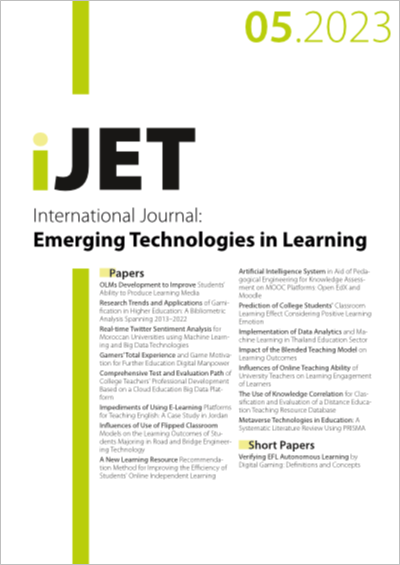Metaverse Technologies in Education: A Systematic Literature Review Using PRISMA
DOI:
https://doi.org/10.3991/ijet.v18i05.35501Keywords:
metaverse technologies, education, systematic review, PRISMAAbstract
Metaverse technology is emerging as a global trend, offering virtual activities with real-world experiences. This paper presents a systematic review of research trends from 2012–2022 to determine the prevalence and current conditions of metaverse technology in education. The PRISMA framework (selected reporting items for systematic review and meta-analysis) guided this systematic review. 42 studies were selected from the Scopus database, with more than 70 studies or references from Google Scholar kept as supporting data after quality assessment. The results indicate that research interest in metaverse technology has significantly increased in the last ten years, peaking in 2022. Augmentation and simulation are the most prominent uses of metaverse technology in the learning process. C. Moro (2017) is the most cited author on this topic, with 313 citations, followed by P. Wang (2022) with 264 citations and P. Pelargos (2022) with 163 citations. AR and VR are the most widely used types of metaverse technology. Hopefully, this review will be useful for researchers, educators, and future research on the metaverse and education.
Downloads
Published
How to Cite
Issue
Section
License
Copyright (c) 2023 Agariadne Dwinggo Samala, Usmeldi, Taali, Ambiyar, Ljubisa Bojic, Yose Indarta, Dana Tsoy, Mouna Denden, Nurullah Tas, Unung Verawardina, Ika Parma Dewi

This work is licensed under a Creative Commons Attribution 4.0 International License.


